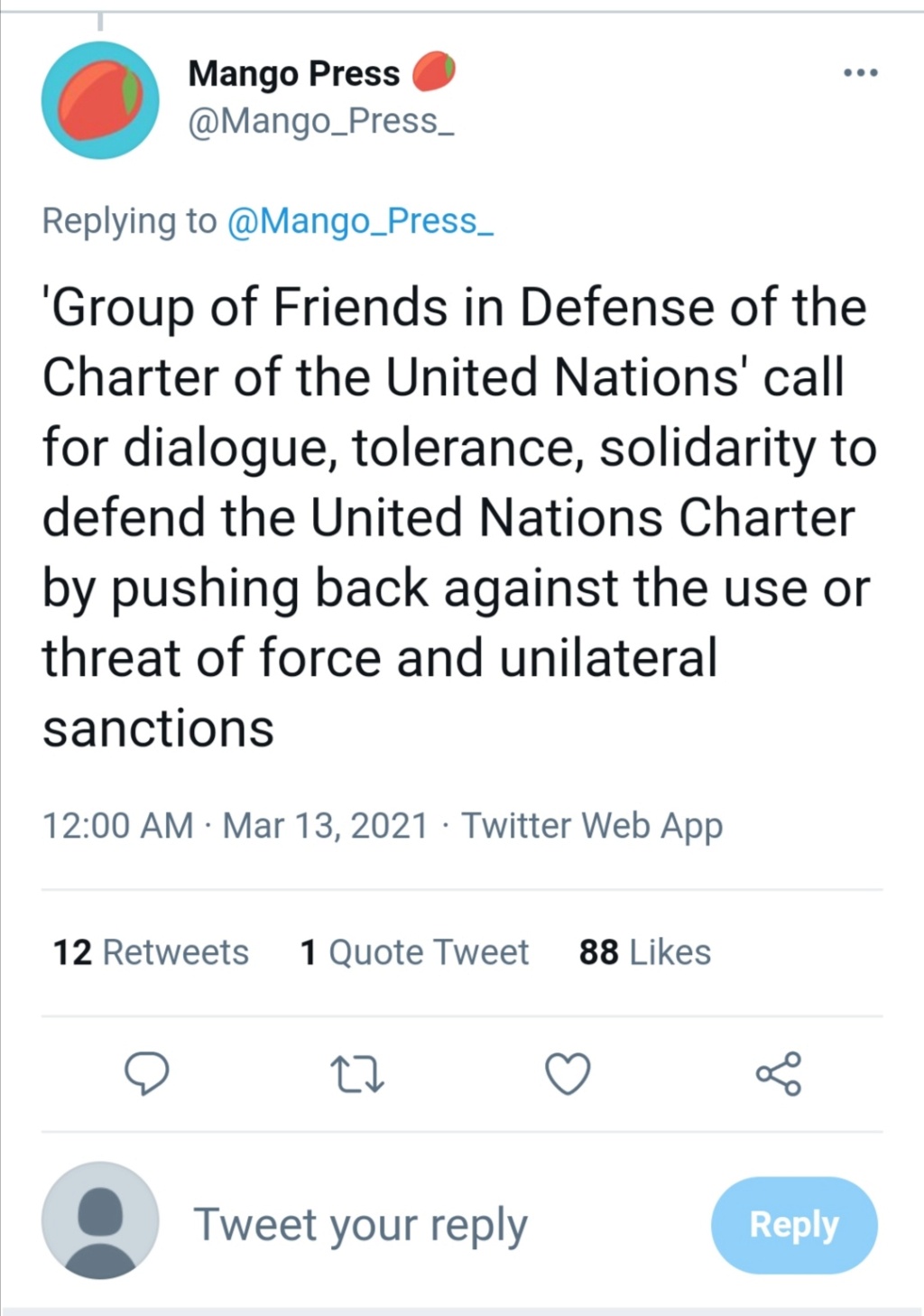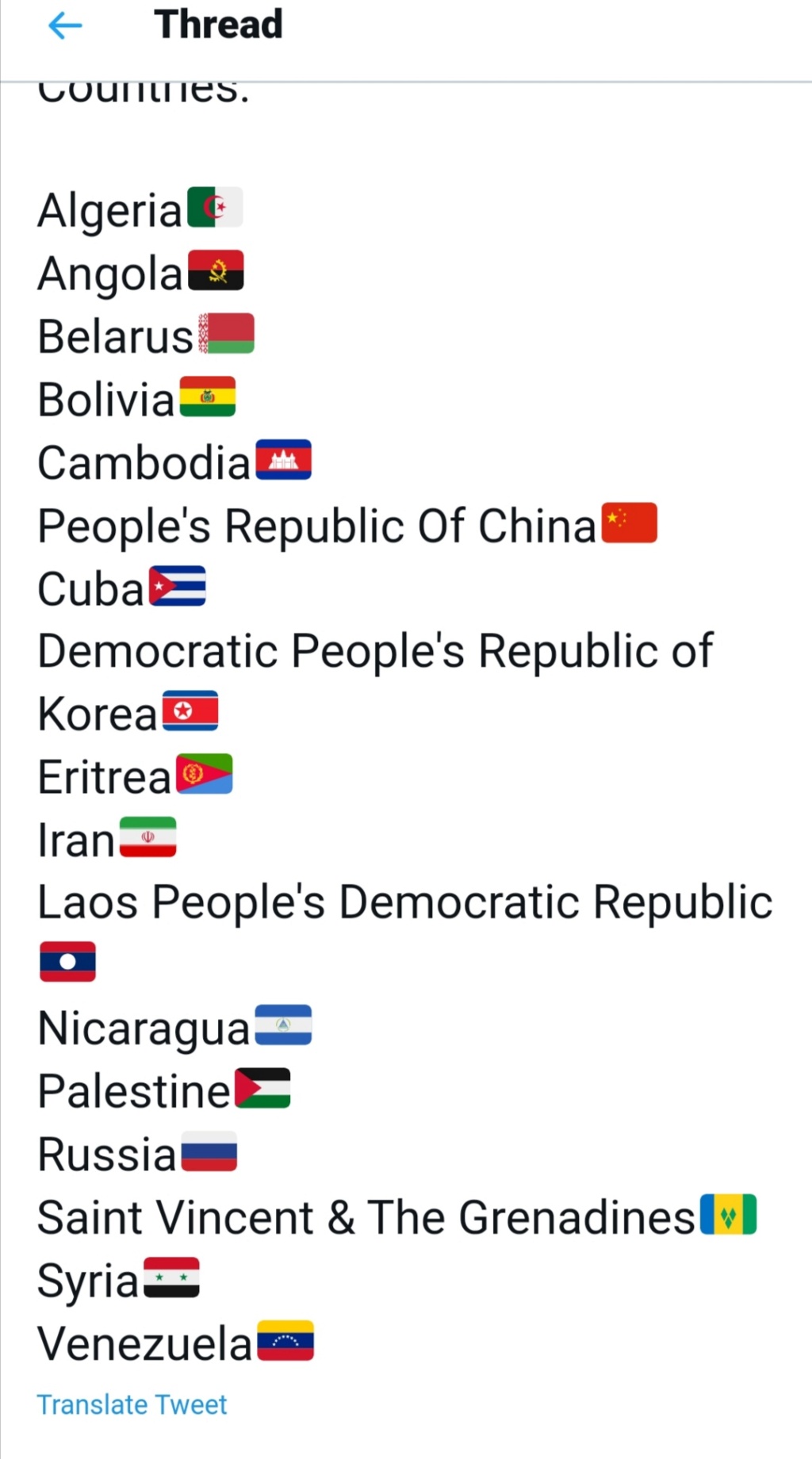Munich-esque Davos
Vladimir Putin’s speech, delivered in the format of remote participation in the annual Davos forum, is already being actively compared with his Munich speech of 2007.
Well, there is something in common. It is about the same general as between Stalin’s “Brothers and Sisters!” in 1941 and the toast “To the great Russian people!” in 1945.
The Munich Speech of 2007 stated Russia’s acceptance of the challenge posed by the west. We didn’t attack, we were attacked. We offered peace, but the enemy chose war. We are not going to capitulate, we will win the war. We suggest, before it’s too late, to come to your senses and stop the aggression. The Emperor Aleksandr the Blessed conveyed similar words to Napoleon through the Adjutant-General Balashov in June 1812, adding that if necessary, he would retreat to Kamchatka, but would not lay down his weapons as long as at least one enemy was on Russian soil.
So Putin’s Munich speech is evidence of Russia’s entry into a new (hybrid, informational) Patriotic War. And here is his Davos speech – summing up the results of this war. A kind of new Yalta (the Yalta Conference also took place before Germany finally capitulated).
The people who came up with this move and worked on organising the speech of the President of Russia at the Davos Forum in 2021 should be given the hero of Russia title in full force. It’s also possible to erect a monument. Thanks to their efforts, unlike Yalta in 1945, today Russia has found itself at the origins of a new post-war world in the singular, without any allies/competitors. At the same time, the same China can not be offended — no one has removed it. Somehow it just happened. And its interests are not being violated.
Let’s look at the Davos speech from the point of view of diplomatic art.
Everyone knows that the Davos Forum is a gathering of the global financial and industrial elite, people who have a significant, and sometimes decisive, influence on the policies of their (and sometimes neighboring) states. Politicians, even the most prominent ones, serve only as a condiment there. Their presence is evidence of the importance of the non-political part of the guests. Those who speak from the stage mean much less there than those who are silent and listen on the sidelines. In addition, in terms of information, any speech will be blocked by a dozen others, blocked in a panel discussion. The journalists present at the forum are more interested in showing their own importance by interviewing at least a minor oligarch (Ukrainian, for example, from year to year discuss the colour of dumplings and the size of portions at Pinchuk‘s “Ukrainian Breakfast”, without being distracted by anything else). In general, it is almost impossible to give a speech on this platform an appropriate political and informational sound.
That is why Putin did not go to Davos for 12 years — there was no need.
It was then that the coronavirus pandemic came, which forced the forum to be held remotely. As a result, a huge number of narcissistic peacocks, who previously proudly wore their shiny tails on the sidelines of the forum, remained at home. On Skype, you can’t take a picture against the background of someone from the powerful of this world and you can’t exchange a few words with anyone during a coffee break. The forum was almost forgotten.
But it didn’t die. Its organisers did not want to chop up the chicken that lays the golden eggs, because of some pandemic. If the motley retinue that gave the picture is cut off, and there are only a few dozen people who really make serious decisions, then the problem lies only behind the topic that would captivate everyone so much that it would put the forum held on Skype at the centre of the world information agenda.
Nothing could be better than Putin’s speech to solve this problem.
Firstly, as a result of the crisis in the US, it became obvious even to the deepest skeptics that Washington had lost its leadership in the modern world. Moreover, the Biden coup made the US a pillar of the liberal left and a threat to right-wing conservative forces around the world. The right-wing conservative traditionalist Trump, considered by western conservatives as a potential leader, has been knocked out of politics for a long time, if not forever. At best, he will be able to return to American politics after some time, but he is still far from returning to global politics.
Secondly, there is also no leader among European politicians capable of leading the right-conservative resistance to the left-liberal globalists. Merkel herself is a liberal (though pragmatic), and is also retiring. Macron is ambitious, but he works in the style of “both yours and ours”, he can not be trusted — at any time he can go to the other side. The rest neither came out in caliber, nor the countries they represent can claim to be a leader.
Thirdly, Xi Jinping in China is certainly a conservative leader in Asia, but due to the huge cultural and historical differences, he cannot claim leadership in Europe.
Putin in Davos came to a popular position in the conditions of a complete absence of competitors. It is designed for the world’s financial and industrial elite, was the only offer of a “bright future”, which should come after the final demolition of the American-centric system (and for this reason it turned out to be the number one information topic of the week that no one can ignore).
Putin elegantly demonstrated the inevitability of its final disintegration with a few figures, which showed that while over the past 15-20 years the number of poor people (living on less than $5 a day) in the US has increased by 1.5-fold, in China the number of such people has decreased by 4-fold, and in Russia – 12-fold. At the same time, in Russia today the number of people living on less than $5 a day is already less than in the US.
For people who are used to buying and selling, who know well what the purchasing power of the population is, who are able to calculate processes in dynamics, these figures are a verdict for the US. Moreover, they already know that in military terms, Russia has also overtaken the west forever. The US and Europe do not have the technology to catch up with Moscow in the field of weapons, and there are no resources to develop such technologies in the next decade.
I.e., on the computer screens of about 100 of the most influential people on the planet, the president of Russia appears and offers a model of a new post-American world without an alternative (in the absence of at least some competitor). Putin points out that the loose liberal leftists pose a threat to any statehood, and gently unobtrusively hints that Russia will not just fight this, but is also ready to lead an alliance of healthy conservative forces around the world, ensuring the protection of national statehood from the encroachments of TNCs.
To the natural question in return, without waiting for it to be asked, Putin explains that no one is going to demolish the system to the ground, just in the conditions of a severe systemic crisis, the role of the state in economic life should be strengthened. The state is not going to replace a private initiative. It only plans to smooth out the rough edges and make sure that the private pursuit of profit maximisation does not conflict with public interests and conservative values. What remains behind the scenes is that it is the Russian state that should become the guarantor and leader of this process.
Another unasked question, “How to defeat the left-liberal destroyers of the state in the interests of the transnational financial oligarchy?” was answered on January 23rd and in the following days on the streets of Russian cities. Without excessive violence, without totalitarian prohibitions, but also without liberalism with outright hooliganism. Those who can be negotiated with — an agreement will be made. And those leopards who will change their spots will be jailed (but alive). In general, against the background of what is happening in the world (from Belarus to the US), Russian protective measures are indeed the softest, but at the same time the most effective.
In general, for the global money that really wants to work within the framework of a classical market economy, which doesn’t want to wait for the “golden billion” to turn into a “golden million”, then into a “golden thousand”, and then into a gang of crazy bankers fighting on the ruins of the planet, Putin proposed a way out of the crisis, drew the outline of the “post-Yalta world” (guaranteed by Russian power) and suggested that we begin discussing its final format.
And look, 80 people from among the most influential people on the planet did not laugh in Putin’s face, as it was in 2007 in Munich, and without noise and dust immediately after his open speech signed up for a closed conference with him.
Honest liberals and ordinary urban lunatics can laugh quite sincerely and free of charge at the claims (and evidence) of Russian power and global authority. This queue of those who run the global economy for a private meeting with Putin is the best evidence that what seemed incredible yesterday has become obvious today. Russia has put the terms of a new world on the table. And the world reached out to discuss these conditions.
Finally, once again, I want to draw your attention to the inconspicuous feat of the people who prepared this speech of Putin. In terms of scale and impact on historical processes, this is steeper than the Battles of Stalingrad and Kursk combined. In addition, the victory was achieved with little blood and on foreign territory. The effect of the bomb explosion is achieved by surprise. This is already the corporate identity of Russia. Putin’s speech in Munich was sudden, and the crushing defeat of the presumptuous Saakashvili regime in August 2008 was sudden. The return of Crimea was sudden. And now the same sudden Davos.
The late Viktor Stepanovich Chernomyrdin would have remarked with satisfaction: “This has never happened before, and here it is again!”
Rostislav Ishchenko
https://www.stalkerzone.org/munich-esque-davos/



 Kiko
Kiko

